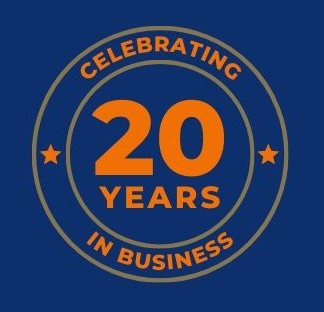5 ways to attack the job market with confidence
- 17 Apr 2019
There was the Dot-com bubble of 1995-2001, the worries of Y2K in 1999, and the global financial crisis commencing in 2007.
During times of upheaval, almost every financial services organisation battens down the hatches, and embarks on significant cost-cutting programs. Inevitably, these measures have people impacts, often resulting in highly competent people finding themselves out of work.
Whether you’re on the hunt for work, or want to ensure you are employable when times get tough, here is my five-pronged strategy to attack the market with confidence.
1) Know who you are and what value you bring
• Understand that today’s market is all about depth. What are you bringing to the table from day one. What do you bring that does not already exist internally? Are you able to articulate your USP in thirty seconds and give live examples to demonstrate what sets you apart?
• Help people help you - narrow down your industry focus to no more than three to begin with – areas where you have deep technical or subject-matter expertise, or where you feel you have a realistic chance of transferring that skill-set.
2) Build relationships with specialist recruiters
• Build relationships with a very small, select group of trusted recruiters who are experienced in your space, understand your skill-set and have longevity and deep relationships in the sector.
3) Work your own network – hard!
• Think about family, friends, friends of family, family of friends that are in any way connected to your space or area of specialisation.
• Linkedin – get your profile 100% up-to-date – selected, quantifiable achievements where you have made a tangible difference to a company’s culture, processes or, most importantly, bottom line.
• Tell a story – be authentic, show character and be brave.
• Human beings love to be asked for help – but resist being put in situations where they have to tell you that they don’t have a job for you. Get your pitch right – ask to buy them a coffee and tap into their network – you may be $6 poorer (depending where you buy your coffee!) but three (warm) names richer.
• Connect with relevant people in those industries – never just connect – send them an InMail with a compelling angle – give them a good reason as to why they should connect with you – use the same principles as if at a cocktail party – would you go up to someone and ask them for a high five or would you check their name tag, ask them some questions and introduce yourself, your background and explain (quickly) how exchanging business cards could be of mutual value at some point in the near or distant future?
• Join relevant groups – get involved in content, exchange ideas, give positive and constructive ideas, start or engage in conversations – indirectly show your value, depth of industry and/or subject matter expertise – once a conversation has momentum, invite that person to connect and build an individual dialogue with them with the view of meeting.
4) Contact relevant organisations directly
• Don’t under-estimate the power of contacting businesses directly, many of whom would prefer to avoid paying a recruitment fee for talent
• Read the newspaper (AFR in particular), relevant industry publications – they have a wealth of information about companies, potential entry into Australia, senior movements etc. Stories typically follow each other over a few days/weeks
• Depending on the size of the business, approach the most relevant person (CEO, CFO, COO, Head of HR etc) again with your pitch/angle – 9 times out of 10, they will ask you to send them your resume.
5) Follow up diligently and appropriately
• This is one of the most critical elements when you send out your resume, always keep track as to where it has gone, who it has been sent to, further context regarding the referrer and the angle, and most importantly, always ask when it would be appropriate to follow up
• Keep a diary and ensure you follow up exactly when asked – not a day earlier or later.
If you are out of work, this approach creates structure to your day. When you turn your diary to the following day, you may have 5 follow up calls to make, a couple of networking coffees, read the paper and publications, get involved in some group discussions, check our job advertisements. It also gives you comfort to pursue other (often neglected) pastimes like keeping fit, spending quality time with your family etc, guilt-free as you know you have done a ‘day’s work’ and when you turn the page you have another day’s work to do tomorrow.
Of course, the importance of building and maintaining your network cannot be underestimated when it comes to making sure you stay employable in these uncertain times. Check out my article: 3 tips for staying employable in uncertain times
If you are currently in an organisation and want further detail around networking internally and externally, or if you find yourself out of work, please do not hesitate to contact me for a confidential discussion.

